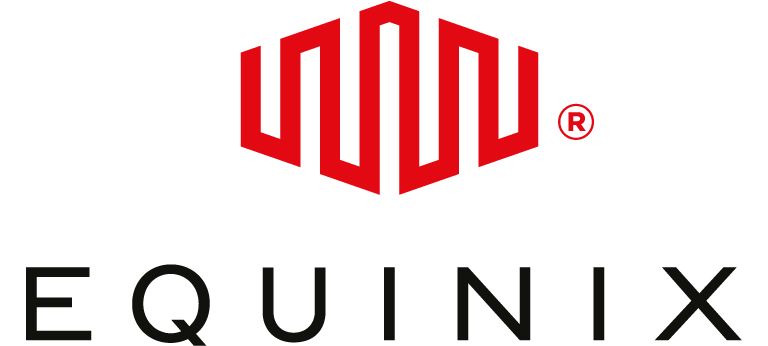Certification of your data center by technical experts
With a data center certification in accordance with the Trusted Site Infrastructure (TSI) methodology developed and introduced to the market by TÜVIT (TÜV NORD GROUP), operators of enterprise data centers and providers of colocation and cloud infrastructures are on the safe side. Their data centers are highly available and stand for reliability due to a neutral third party assessment. It gives third-party users of such data centers safety and confidence in the installation of the mission critical infrastructure.
TÜVIT has been evaluating and certifying data centers since 2002. Since then, over 1,000 certification projects have been successfully completed. A TSI-certified data center is a proven benchmark for data centers in Germany and increasingly internationally.
![]() Proven reliability of your data center
Proven reliability of your data center
In the form of an independent certificate, you prove the high security & availability - and therefore also the reliability - of your data center.
![]() Improvement of the general security level
Improvement of the general security level
By uncovering vulnerabilities, you minimize the risk of high error correction costs, availability restrictions or outages of your data center.
![]() All-round carefree package thanks to TSI.ECOSYSTEM
All-round carefree package thanks to TSI.ECOSYSTEM
From training & workshops, planning assessments & commissioning to the certification of your data center, we offer you comprehensive services.
Whitepaper Download: Data Center Certification
Our free white paper focuses on the topic of certification, examines the various data center standards and discusses the certification process and benefits.
Download with restricted access
Overview of standards for the certification of data centers
Trusted Site Infrastructure (TSI) is a methodology for evaluating and certifying the physical security and availability of data centers that has been established since 2001. It has become the benchmark in the data center industry. It is based on TÜVIT's own TSI.STANDARD criteria catalog.
The European data center standard DIN EN 50600 takes a holistic approach and sets out comprehensive specifications for the planning, construction and operation of data centers.
As the international equivalent to EN 50600, ISO/IEC 22237 creates the basic prerequisite for ensuring that data centers can be planned, built and operated according to the same principles worldwide.
The TSI methodology for the certification of data centers
The testing and certification of data centers can be carried out according to the following criteria catalogs:




TSI.STANDARD




TSI.EN50600
With these two approaches, we can now meet the demand for dedicated certificates for the European data center standard EN 50600 (TSI.EN50600) as well as offer more comprehensive assessments (TSI.STANDARD). These enable a comprehensible classification of data centers and establish comparability in terms of availability and security in four levels (TSI Level 1 - 4).
This results in a certificate that confirms conformity with the standard or the TSI certificate that has been established for years. With the help of the current criteria catalogs, data centers are analyzed in thematically separated evaluation aspects:
ENV: Environment
CON: Construction
FIR: Fire Protection & Extinguishing Systems
SEC: Security Systems & Organization
CAB: Cabling
EFF: Energy Efficiency
POW: Power Supply
ACV: Air Conditioning & Ventilation
ORG: Organization
DOC: Documentation
DDC: Dual Site Data Center
(TSI.STANDARD only)
The TSI methodology involves a 25-strong interdisciplinary team of experienced auditors and technical experts. The more in-house resources, expertise and interdisciplinary teams a provider has for certification and the more experienced they are in carrying out the audit thanks to years of experience, the more meaningful and valuable the certificate awarded at the end will be. The TSI methodology also defines the processes in accordance with DIN EN ISO/IEC 17065, a standard for certification bodies that ensures that qualified auditors are used, quality controls are carried out and certification decisions are made independently.
Benefits of certifying your data center
Objective proof of data center security & availability
An independent certificate visibly proves the high security and availability of your data center to the outside world.
Reduction of risks & downtimes
The risk of availability restrictions or outages is minimized by identifying weak points.
Benefit from competitive advantages
With a certificate from an impartial third party, you stand out from the competition & secure advantages.
Positive risk assessment
The certification of your data center has a positive effect on the risk assessment by insurance companies.
Increased trust in your data center
The certificate strengthens the trust of customers, monitoring institutions and insurance companies.
Identification of existing potential for improvement
As part of the certification process, you uncover potential for improving the security and availability of your data center.
Security when awarding planning contracts
Successful certification of your data center improves your chances of being awarded planning contracts.
Protection against financial & reputational damage
With successful certification, you can prevent downtime – and the associated financial losses.
Standards relevant for data centers
When it comes to data center certifications, it is essential to distinguish between physical, IT and organizational security.
Figuratively speaking, the different levels of security can be compared to a house. Management standards such as EN ISO 9001 and ISO/IEC 27001 represent the roof of the house, while the technical assessments, such as TSI, form the foundation. There are also the so-called "Common Criteria" (ISO/IEC 15408), which relate to the building structure (one floor of the building). However, data center operators rarely come into contact with these tests, as Common Criteria relate to operating systems, firewalls or encryption software or hardware, among other things. Instead, the manufacturers of these products must ensure that the respective installations are clean in terms of security. In addition, ISO/IEC 20000, which covers IT service management, is also used for service data centers. Physical security is covered by TSI (Trusted Site Infrastructure) or the European standard, for example.




TSI.STANDARD & TSI.EN50600 in comparison
| TSI.STANDARD | TSI.EN50600 |
|---|---|
| Classification into four clear levels | Classification into a combination of four availability classes, four protection classes and three granularity levels |
| Detailed/precise specifications | Partially abstract specifications |
| Meaningful evaluation report | Results report for the certification decision |
| Certification of redundant data centers | Not possible |
| The requirements are fixed to ensure clear comparability | Risk analysis influences the implementation of the requirement criteria |
The assessment & certification process
1.
Workshop (optional)
Creating a uniform understanding, preparation, orientation, assessment of the state of the art, definition of objectives
2.
Document review
Formal review of security concept/business risk analysis, implementation descriptions, implementation plans and schematics, etc.
3.
Certification audit
On-site audit to review the planned and implemented infrastructure measures
4.
Certification report
Preparation of a meaningful and detailed audit report
5.
Certification decision
Evaluation of the test report, certification decision, issuing and publication of the certificate if all requirements are met
6.
Re-certification
Before certificate expiry after approx. 24 months for seamless follow-up certification









































